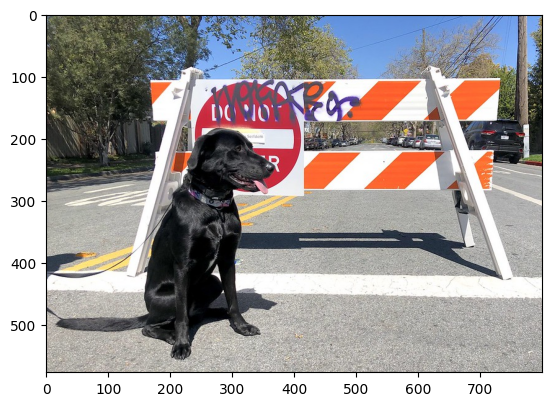Convert a TensorFlow Model to OpenVINO™#
This Jupyter notebook can be launched on-line, opening an interactive environment in a browser window. You can also make a local installation. Choose one of the following options:
This short tutorial shows how to convert a TensorFlow MobileNetV3 image classification model to OpenVINO Intermediate Representation (OpenVINO IR) format, using Model Conversion API. After creating the OpenVINO IR, load the model in OpenVINO Runtime and do inference with a sample image.
Table of contents:
Installation Instructions#
This is a self-contained example that relies solely on its own code.
We recommend running the notebook in a virtual environment. You only need a Jupyter server to start. For details, please refer to Installation Guide.
# Install openvino package
%pip install -q "openvino>=2023.1.0" "opencv-python"
%pip install -q "matplotlib>=3.4"
%pip install -q "tensorflow-macos>=2.5; sys_platform == 'darwin' and platform_machine == 'arm64' and python_version > '3.8'" # macOS M1 and M2
%pip install -q "tensorflow>=2.5; sys_platform == 'darwin' and platform_machine != 'arm64' and python_version > '3.8'" # macOS x86
%pip install -q "tensorflow>=2.5; sys_platform != 'darwin' and python_version > '3.8'"
%pip install -q tf_keras tensorflow_hub tqdm
Note: you may need to restart the kernel to use updated packages.
Note: you may need to restart the kernel to use updated packages.
Note: you may need to restart the kernel to use updated packages.
Note: you may need to restart the kernel to use updated packages.
Note: you may need to restart the kernel to use updated packages.
Note: you may need to restart the kernel to use updated packages.
Imports#
import os
import time
from pathlib import Path
os.environ["TF_CPP_MIN_LOG_LEVEL"] = "2"
os.environ["TF_USE_LEGACY_KERAS"] = "1"
import cv2
import matplotlib.pyplot as plt
import numpy as np
import openvino as ov
import tensorflow as tf
# Fetch `notebook_utils` module
import requests
r = requests.get(
url="https://raw.githubusercontent.com/openvinotoolkit/openvino_notebooks/latest/utils/notebook_utils.py",
)
open("notebook_utils.py", "w").write(r.text)
from notebook_utils import download_file, device_widget
Settings#
# The paths of the source and converted models.
model_dir = Path("model")
model_dir.mkdir(exist_ok=True)
model_path = Path("model/v3-small_224_1.0_float")
ir_path = Path("model/v3-small_224_1.0_float.xml")
Download model#
Load model using tf.keras.applications api and save it to the disk.
model = tf.keras.applications.MobileNetV3Small()
model.save(model_path)
WARNING:tensorflow:input_shape is undefined or non-square, or rows is not 224. Weights for input shape (224, 224) will be loaded as the default. WARNING:tensorflow:Compiled the loaded model, but the compiled metrics have yet to be built. model.compile_metrics will be empty until you train or evaluate the model. INFO:tensorflow:Assets written to: model/v3-small_224_1.0_float/assets
INFO:tensorflow:Assets written to: model/v3-small_224_1.0_float/assets
Convert a Model to OpenVINO IR Format#
Convert a TensorFlow Model to OpenVINO IR Format#
Use the model conversion Python API to convert the TensorFlow model to
OpenVINO IR. The ov.convert_model function accept path to saved
model directory and returns OpenVINO Model class instance which
represents this model. Obtained model is ready to use and to be loaded
on a device using ov.compile_model or can be saved on a disk using
the ov.save_model function. See the
tutorial
for more information about using model conversion API with TensorFlow
models.
# Run model conversion API if the IR model file does not exist
if not ir_path.exists():
print("Exporting TensorFlow model to IR... This may take a few minutes.")
ov_model = ov.convert_model(model_path, input=[[1, 224, 224, 3]])
ov.save_model(ov_model, ir_path)
else:
print(f"IR model {ir_path} already exists.")
Exporting TensorFlow model to IR... This may take a few minutes.
Test Inference on the Converted Model#
Load the Model#
core = ov.Core()
model = core.read_model(ir_path)
Select inference device#
select device from dropdown list for running inference using OpenVINO
device = device_widget()
compiled_model = core.compile_model(model=model, device_name=device.value)
Get Model Information#
input_key = compiled_model.input(0)
output_key = compiled_model.output(0)
network_input_shape = input_key.shape
Load an Image#
Load an image, resize it, and convert it to the input shape of the network.
# Download the image from the openvino_notebooks storage
image_filename = download_file(
"https://storage.openvinotoolkit.org/repositories/openvino_notebooks/data/data/image/coco.jpg",
directory="data",
)
# The MobileNet network expects images in RGB format.
image = cv2.cvtColor(cv2.imread(filename=str(image_filename)), code=cv2.COLOR_BGR2RGB)
# Resize the image to the network input shape.
resized_image = cv2.resize(src=image, dsize=(224, 224))
# Transpose the image to the network input shape.
input_image = np.expand_dims(resized_image, 0)
plt.imshow(image);
coco.jpg: 0%| | 0.00/202k [00:00<?, ?B/s]

Do Inference#
result = compiled_model(input_image)[output_key]
result_index = np.argmax(result)
# Download the datasets from the openvino_notebooks storage
image_filename = download_file(
"https://storage.openvinotoolkit.org/repositories/openvino_notebooks/data/data/datasets/imagenet/imagenet_2012.txt",
directory="data",
)
# Convert the inference result to a class name.
imagenet_classes = image_filename.read_text().splitlines()
imagenet_classes[result_index]
imagenet_2012.txt: 0%| | 0.00/30.9k [00:00<?, ?B/s]
'n02099267 flat-coated retriever'
Timing#
Measure the time it takes to do inference on thousand images. This gives an indication of performance. For more accurate benchmarking, use the Benchmark Tool in OpenVINO. Note that many optimizations are possible to improve the performance.
num_images = 1000
start = time.perf_counter()
for _ in range(num_images):
compiled_model([input_image])
end = time.perf_counter()
time_ir = end - start
print(f"IR model in OpenVINO Runtime/CPU: {time_ir/num_images:.4f} " f"seconds per image, FPS: {num_images/time_ir:.2f}")
IR model in OpenVINO Runtime/CPU: 0.0010 seconds per image, FPS: 977.05